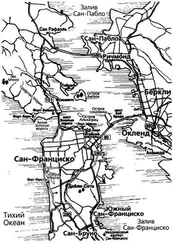Smith peered cautiously round the door jamb, just in time to see stick and suspended mirror being withdrawn from sight, presumably to make adjustments. A few seconds later and the stick appeared again, this time with the mirror angled at more or less forty-five degrees. Mirror and stick disintegrated under the flatly staccato hammering of Schaffer’s machine-pistol. Schaffer stood up, took careful aim at the single overhead light illuminating the passage and fired one shot. Now the sole light in the passage came from the torch on the floor, the light from which would not only effectively conceal from the Germans at the far end of the passage what was going on at the radio room door but, indeed, make it very difficult to decide whether or not the door itself was open or shut.
Smith and Schaffer moved back into the radio room, soundlessly closed the door behind them and as soundlessly turned the key in the lock. Schaffer used the leverage of his Schmeisser to bend the key so that it remained firmly jammed in the wards of the lock.
They waited. At least two minutes passed, then they heard the sound of excited voices at the far end of the passage followed almost at once by the sound of heavy boots pounding down the passage. They moved away from the door, passed inside the radio spares room, leaving just a sufficient crack in the doorway to allow a faint backwash of light to filter through. Smith said softly: ‘Mary, you and Mr Jones for Thomas there. A gun in each temple.’ He took Christiansen for himself, forced him to kneel and ground his gun into the back of his neck. Schaffer backed Carraciola against a wall, the muzzle of his Schmeisser pressed hard against his teeth. At the other end of the machine-pistol Schaffer smiled pleasantly, his teeth a pale gleam in the near darkness. The stillness inside the little room was complete.
The half-dozen Germans outside the radio room door bore no resemblance to the elderly guard von Brauchitsch had interrogated in the courtyard. They were élite soldiers of the Alpenkorps, ruthless men who had been ruthlessly trained. No one made any move to approach the door handle or lock: the machine-like efficiency with which they broached that door without risk to themselves was clearly the result of a well-drilled procedure for handling situations of precisely this nature.
At a gesture from the Oberleutnant in charge, a soldier stepped forward and with two diagonal sweeps emptied the magazine of his machine-pistol through the door. A second used his machine-pistol to stitch a neat circle in the wood, reversed his gun and knocked in the wooden circle with the butt. A third armed two grenades and lobbed them accurately through the hole provided while a fourth shot away the lock. The soldiers pressed back on each side of the door. The two flat cracks of the exploding grenades came almost simultaneously and smoke came pouring through the circular hole in the door.
The door was kicked open and the men rushed inside. There was no longer any need to take precautions – any men who had been in the same confined space as those two exploding grenades would be dead men now. For a moment there was confusion and hesitation until the blue acrid smoke was partially cleared away by the powerful cross-draught then the Oberleutnant, locating the source of this draught with the aid of a small hand-torch, ran across to the open window, checked at the sight of the rope disappearing over the sill, leaned out the window, rubbed his now-streaming eyes and peered downwards along the beam of his torch. The beam reached perhaps half-way down the side of the volcanic plug. There was nothing to be seen. He caught the rope in his free hand and jerked it savagely: it was as nearly weightless as made no difference. For a moment he focused his torch on the disturbed snow on the window-ledge then swung back into the room.
‘ Gott in Himmel !’ he shouted. ‘They’ve got away. They’re down already! Quickly, the nearest phone!’
‘Well, now.’ Schaffer listened to the fading sound of running footsteps, removed the muzzle of his Schmeisser from Carraciola’s teeth and smiled approvingly. ‘That was a good boy.’ Gun in Carraciola’s back, he followed Smith out into the wrecked radio room and said thoughtfully: ‘It isn’t going to take them too long to find out there are no footprints in the snow down there.’
‘It’s going to take them even less time to discover that this rope is gone.’ Swiftly, ignoring the stabbing pain in his right hand, Smith hauled the nylon in through the window. ‘We’re going to need it. And we’re going to need some distractions.’
‘I’m distracted enough as it is,’ Schaffer said.
‘Take four or five plastic explosives, each with different fuse length settings. Chuck them into rooms along the corridor there.’
‘Distractions coming up.’ Schaffer extracted some plastic explosives from the kit-bag, cut the slow-burning RDX fuses off to varying lengths, crimped on the chemical igniters, said, ‘Consider it already done,’ and left.
The first three rooms he came to were locked and he wasted neither time nor the precious ammunition of his silenced Luger in trying to open them. But each of the next five rooms was unlocked. In the first three, all bedrooms, he placed charges in a Dresden fruit bowl, under an officer’s cap and under a pillow: in the fourth room, a bathroom, he placed it behind a WC and in the fifth, a store-room, high up on a shelf beside some highly inflammable-looking cardboard cartons.
Smith, meanwhile, had ushered the others from the still smoke-filled, eye-watering, throat-irritating atmosphere of the radio room into the comparatively purer air of the passage-way beyond, and was waiting the return of Schaffer when his face became suddenly thoughtful at the sight of some fire-fighting gear – a big CO 2extinguisher, buckets of sand and a fireman’s axe – on a low platform by the passage wall.
‘You are slipping, Major Smith.’ Mary’s eyes were red-rimmed and her tear-streaked face white as paper, but she could still smile at him. ‘Distractions, you said. I’ve had the same thought myself, and I’m only me.’
Smith gave her a half-smile, the way his hand hurt he felt he couldn’t afford the other half, and tried the handle of a door beside the low platform, a door lettered AKTEN RAUM – Records Office. Such a door, inevitably, was locked. He took the Luger in his left hand, placed it against the lock, squeezed the trigger and went inside.
It certainly looked like a Records Office. The room was heavily shelved and piled ceiling-high with files and papers. Smith crossed to the window, opened it wide to increase the draught then scattered large piles of paper on the floor and put a match to them. The paper flared up at once, the flames feet high within seconds.
‘Kinda forgot this, didn’t you?’ Schaffer had returned and was bearing with him the large CO 2cylinder. He crossed to the window. ‘Gardyloo or mind your heads or whatever the saying is.’
The cylinder disappeared through the open window. The room was already so furiously ablaze that Schaffer had difficulty in finding his way back to the door again. As he stumbled out, his clothes and hair singed and face smoke-blackened, a deep-toned bell far down in the depths of the Schloss Adler began to ring with a strident urgency. ‘For God’s sake, what next,’ Schaffer said in despair. ‘The fire brigade?’
‘Just about,’ Smith said bitterly. ‘Damn it, why couldn’t I have checked first? Now they know where we are.’
‘A heat-sensing device linked to an indicator?’
‘What else? Come on.’
They ran along the central passage-way driving the prisoners in front of them, dropped down a central flight of stairs and were making for the next when they heard the shouting of voices and the clattering of feet on treads as soldiers came running up from the castle courtyard.
Читать дальше
Конец ознакомительного отрывка
Купить книгу










